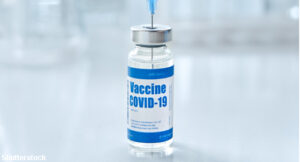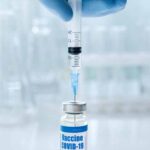 Background & Objectives
Background & Objectives
The ongoing COVID-19 pandemic is a global health emergency. Vaccines are important in resolving this crisis, having been proven to be efficacious and safe in the general population. Vaccines, however, rely on a functional immune system. Immunogenicity and safety following receipt of the standard SARS-CoV-2 vaccination regimen in patients with immune-mediated inflammatory diseases (IMIDs) are poorly characterized, and data after receipt of the third vaccine dose are lacking.
The utility of a third SARS–CoV-2 vaccine dose in immunocompromised patients, as well as in the general population, is an urgent question in the global medical community and for policy makers. Thus, Syversen et al. set out to evaluate serologic responses and adverse events following the standard two-dose regimen and a third dose of SARS-CoV-2 vaccine in IMID patients receiving immunosuppressive therapy.
Methods
Adult IMID patients receiving immunosuppressive therapy for rheumatoid arthritis, spondyloarthritis, psoriatic arthritis, Crohn’s disease or ulcerative colitis, as well as healthy adult controls, who received the standard two-dose SARS-CoV-2 vaccination regimen were included in this prospective observational study. Analyses of antibodies to the receptor-binding domain (RBD) of the SARS-CoV-2 spike protein were performed prior to and two to four weeks after vaccination. Patients with a weak serologic response, defined as an IgG antibody titer of ≤100 AU/mL against the receptor-binding domain of the full-length SARS-Cov-2 spike protein, were allotted a third vaccine dose.
Results
A total of 1,505 IMID patients (91%) and 1,096 healthy controls (98%) had a serologic response to the standard regimen (P<0.001 between patients and controls). Anti-RBD antibody levels were lower in patients (median 619 AU/mL; interquartile range [IQR] 192–4,191) than in controls (median 3,355 AU/mL [IQR 896–7,849]; P<0.001). The proportion of responders was lowest among patients receiving tumor necrosis factor inhibitor combination therapy, Janus kinase inhibitors or abatacept. Younger age and receipt of messenger RNA-1273 (Moderna) vaccine were predictors of serologic response. Of 153 patients who had a weak response to the standard regimen and received a third dose, 129 (84%) became responders. The vaccine safety profile among patients and controls was comparable.
Adverse Events
Among recipients of the standard two-dose vaccination regimen, adverse events—most commonly pain at injection site, discomfort and flu-like symptoms—were reported in 810 (50%) of 1,516 IMID patients and 191 (78%) of 244 healthy controls, with a comparable safety profile. Following receipt of the third dose, 70 patients (44%) reported adverse events; no new safety issues emerged, except disease flares were reported by 16% of IMID patients. After receipt of the first and second doses, disease flares were reported by 78 patients (6%) and 88 patients (6%), respectively.



